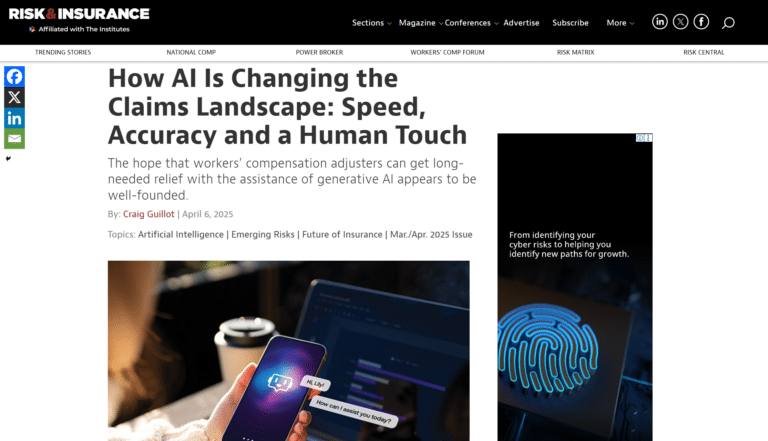Cultural competency is critical for carriers wishing to grow and progress, as it will lead to better financial and claims outcomes, high-quality talent retention and many other benefits.
Read on for Dawn Griffin and Joe Berrios’s exploration of the importance of being culturally competent.

Q: What is cultural competency?
GRIFFIN: Cultural competency goes beyond just the acknowledgement of a historical event or awareness day. It means being authentic in your commitment to understand, communicate with, and effectively interact with people across cultures. Companies live cultural competence when they demonstrate positive attitudes towards cultural differences and gaining knowledge of different cultural practices.
BERRIOS: Companies that are truly culturally competent are those who do not just put up a tile on social media on an important day, but those who invest in cultural training and engagement programs, diverse and inclusive recruitment strategies, and regular engagement with their communities. The outcomes of being culturally competent are worth it – from improving your reputation, greater employee engagement, alignment with meaningful company values and improving client retention – improving cultural competence in the workplace can improve many contributing factors to productivity and performance. Carriers should be prepared to act on this.
Q: How does a carrier’s reputation come into play here?
GRIFFIN: It’s very clear that the general public embraces companies that demonstrate diversity awareness, acceptance and inclusion in their organization; and the public does not tolerate corporations who are seen as being racially biased, culturally insensitive or fail to take a stand against inappropriate behavior. Silence is no longer golden in this situation and those who choose to stay silent on important matters may well risk serious reputational damage.
BERRIOS: Dawn’s right – silence is not golden anymore. We are going through a cultural shift, and a corporation which isn’t culturally sensitive will likely face loud public criticism. As we all know, reputation is key to controlling many cost and attrition factors, so this shouldn’t be treated lightly. If you are going to use your corporate voice for positive change and success – make sure it goes beyond words. Companies who are behaving in a performative manner are rightly being called out.
Q: How can cultural competence lead to better employee engagement?
GRIFFIN: Company culture is a system of values, beliefs, and behaviors that shape how work gets done and employee engagement is a direct outcome of culture. It’s how employees feel about their work and their workplace that leads to how committed and engaged they are with their employer. It’s simple; employees will commit and excel in their role when they feel included, understood, supported and empowered to do their best in their role. This leads to employee satisfaction and better outcomes for your business.
BERRIOS: We have built several initiatives around education and awareness, career and development opportunities, and supporting the diversity causes our employees care about. In tandem, these have increased engagement and critical conversations by all levels of employees. Whether expressed in the form of a multi-racial choir singing “Lift Every Voice” or an online Asian American and Pacific Islander cookbook, different media is utilized to involve our teams.
Q: Can cultural competence improve access to potential talent?
GRIFFIN: Aligning culture with business strategy is key to attracting talent as much as it is for growth and profit. Having clearly defined core values and living by those values is essential to good business culture. People want to be inspired by the companies they work for and work with. Companies that walk the talk and have a presence in the community will go great lengths in attracting talent who feel encouraged to bring their full potential to work. This talent will then feel they can offer you a greater skillset, creativity and value to your company. However, before you start promoting your D&I initiatives to potential employees, make sure your existing employees feel heard, supported and recognized for the unique value they bring. This is the heart of cultural competence, it encourages both acceptance and acknowledgement of the value brought to a company from diverse thoughts, ideas and practices. All of this work leads to greater talent retention and company growth.
BERRIOS: Absolutely! A carrier that is actively culturally competent is more likely to attract high-performing and engaged talent who are drawn to a business that is motivated to be a positive part of the wider community. But, you can’t just rely on your external presence reflecting this – your recruitment processes need to have diversity embedded. Cultural competence also helps drive customers, who we know are more and more motivated to work with companies who are diverse, ethical and live strong cultural values.
To learn more about how Gallagher Bassett can help your company become more culturally competent, connect with our experts at RIMS 2021.






